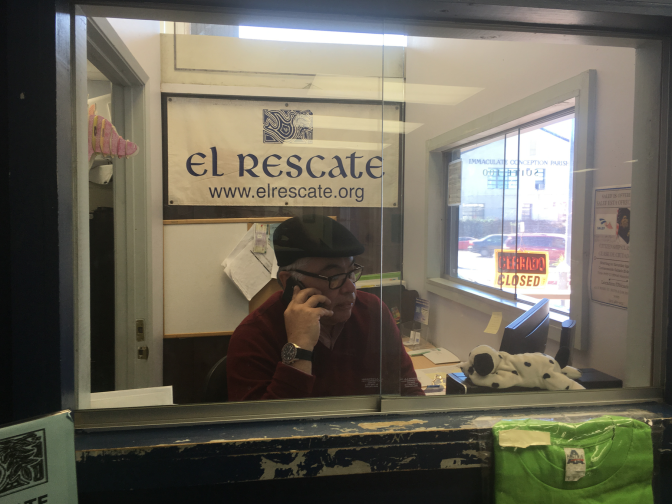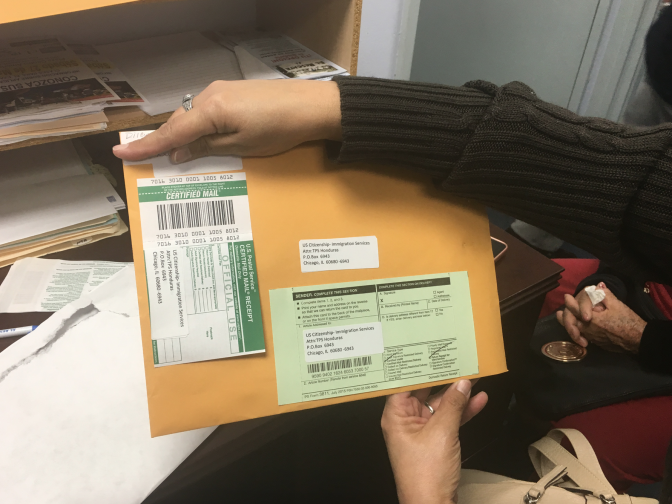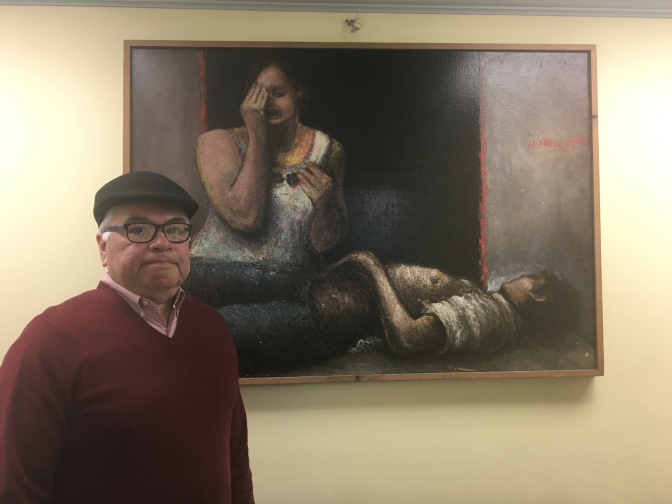This story is free to read because readers choose to support LAist. If you find value in independent local reporting, make a donation to power our newsroom today.
This archival content was originally written for and published on KPCC.org. Keep in mind that links and images may no longer work — and references may be outdated.
Immigrants losing their temporary protection from deportation have few options
Dilcia Inestroza hunched over her iPhone on a recent afternoon, watching news reports of protests in her native Honduras as she waited at a downtown Los Angeles legal clinic.
In the video, demonstrators clashed with police in one of many violent demonstrations that have followed a disputed presidential election. Honduras is not a place she wants to return to, Inestroza said.
As she caught up on events in her homeland, a legal worker helped her at El Rescate, a community organization and legal clinic that assists Central American immigrants. She was there to renew her protection from deportation under a humanitarian program called Temporary Protected Status. TPS allows Inestroza to live and work in the United States legally, at least for now.
“Right now, I am just praying to God that they give us an extension, or they let us stay just a little longer," Inestroza said in Spanish. "Because right now, the way the situation is in Honduras, I don't think it's going to fix itself from one year to the next."
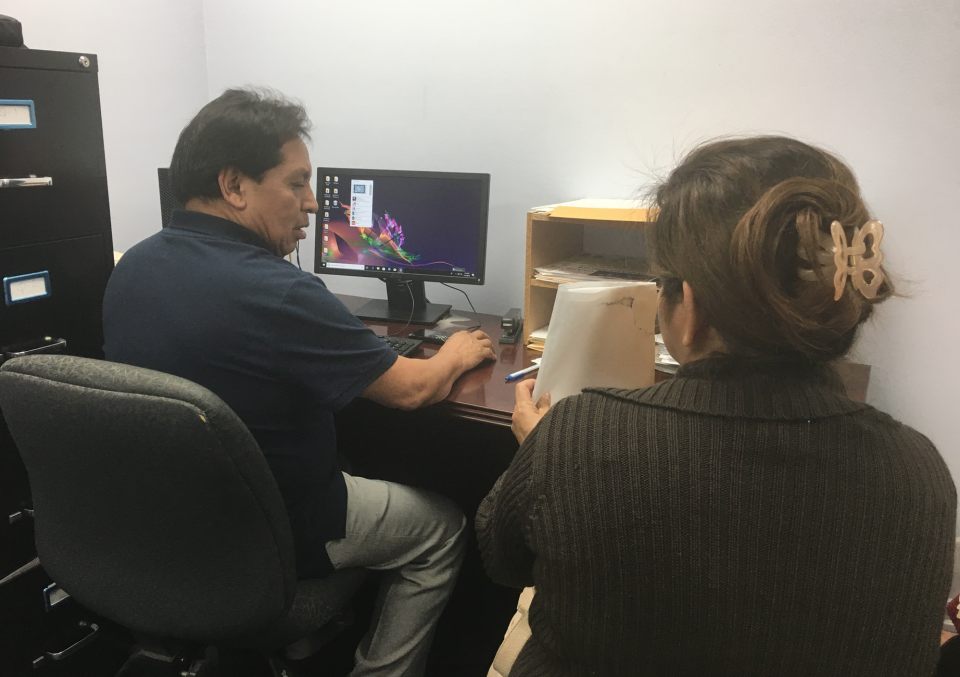
LONG HISTORY OF TEMPORARY PROTECTION
TPS has long been granted to immigrants from countries hit by crises, like natural disasters or war, and the federal government typically renewed the deportation protection every 18 months.
Inestroza was granted TPS nearly 20 years ago, after Hurricane Mitch devastated Honduras. In the years since, she’s built her life here in Van Nuys. She runs a small cleaning-service business and has owned a house for nine years.
“The truth is, all of what we have is here," she said. "I bought a house here...our roots are here."
But Inestroza fears this could be the last time she get to renew her temporary protection status.
The Trump administration has already announced it’s canceling TPS for hundreds of thousands of Salvadoran, Haitian, Nicaraguan and Sudanese immigrants. Syrians just learned their protection will be extended another 18 months, but their future is in limbo.
The administration has said it is taking the action because the conditions that led to these immigrants' TPS protection have ended, including the powerful earthquakes in El Salvador in 2001 and Haiti in 2010.

In November, the Department of Homeland Security announced that the "substantial but temporary" conditions caused by Hurricane Mitch in 1998 no longer existed in Nicaragua, but announced that more information was necessary before a decision could be made regarding Honduras. Hondurans, whose TPS status was extended for only six months, will learn their fate by May.
The waiting room at El Rescate has been inundated with TPS holders lately, all desperate for advice. On one Saturday morning recently, people were lined up outside the door for legal screenings.
Salvador Sanabria, the clinic's executive director, worked the intake window, answering questions and scheduling appointments.
“Our effort is to educate the community, outreach [to] the community that have TPS to come here, and have a free legal consultation to see if they can adjust" to another status, Sanabria said.
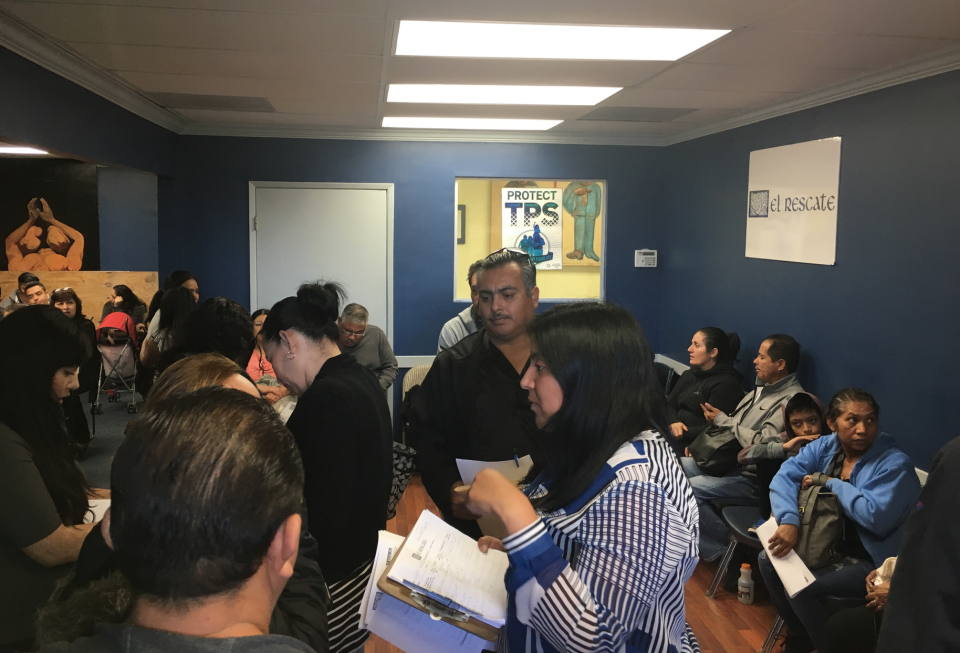
Immigrant advocates and legal providers have been hurrying to screen TPS holders to see who might qualify for legal residency. There is hope for some: a 9th U.S. Circuit Court of Appeals decision last year allows those with U.S. citizen children 21 or older or citizen spouses to apply for permanent legal status.
The court held that obtaining TPS, which requires vetting and background checks, counted as "admission" to the United States, even if the individual initially entered illegally. People who are legally admitted to the country with a visa have a much easier time switching to legal resident status through a relative.
But only about 15 percent of TPS holders may qualify for this option, according to the Central American Resource Center in Los Angeles, which has been screening potential candidates.
And it might not be an automatic solution for people who were once in deportation proceedings, even if they have a qualifying citizen spouse and children, said Daniel Sharp, CARECEN's legal director. They would need to reopen old deportation cases, "which is by no means certain, even if they hire a lawyer," Sharp said.
For most TPS holders losing their protection, the choices don't look promising once it expires.
“They might find themselves without any choices but to face immigration authorities trying to remove them from the United States ... or hiding,” said El Rescate's Sanabria.

HOLDING OUT HOPE
Teresa Turcios stood in line recently at El Rescate after driving to L.A. from San Diego with her husband. Like about 260,000 other Salvadorans, the couple learned in January that their TPS protection ends next year.
They have an adult son, but he was born in El Salvador, Turcios said, so they cannot seek permanent residency through him.
Turcios, who works as a supervisor at a hot-tub manufacturer, said all she can do is hope that Congress acts between now and September 2019, when their TPS protection expires.
“I hope they can approve something better than this, that people can unite to help us have something else, like residency … for Congress to support us,” she said.
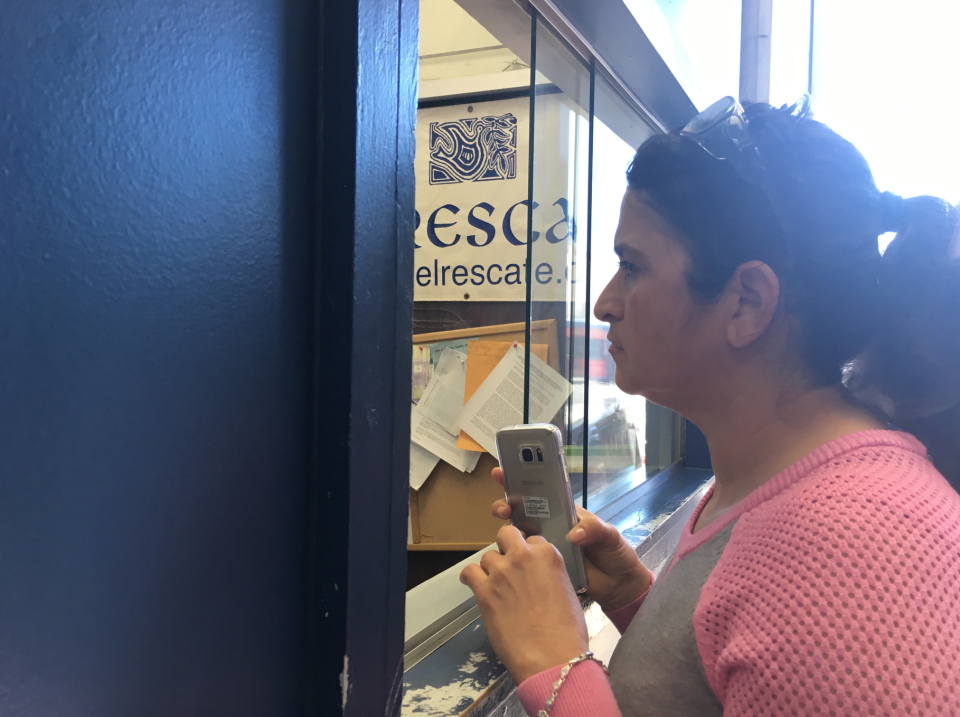
A handful of bills have been introduced to keep TPS holders in the country, but there’s stiff opposition to that idea in the GOP-controlled Congress, and among immigration hawks like Ira Mehlman.
"They need to return to their home countries," said Mehlman with the Federation for American Immigration Reform, a group that advocates immigration restrictions. "They understood what the terms were when they accepted these protections. We are now, in some cases, 20 years removed from the triggering event.”
TPS holders and immigrant advocates argue that their countries remain wracked by instability and violence. Honduras and El Salvador have suffered under a deadly increase in gang violence in the years since their devastating hurricanes.
Mehlman said he's aware of the problems in those countries, but notes that "the T in TPS stands for temporary."
"Let's face it, these countries are not perfect," Mehlman said. "They were far from perfect when the triggering events occurred. But the offer was, we are going to allow you to stay here in the immediate aftermath of a particular event, until the country recovers from that initial shock. That long since has passed."
At the El Rescate office, Dilcia Inestroza sat with Agustina Santos, her best friend who was visiting from Honduras. Both women said the country is worse off now than after the hurricane.
Santos, who lives in the city of San Pedro Sula, described the daily stress of living with gang violence, which for years has plagued both women's hometown.
"Things are sad over there," Santos said in Spanish. "People there are sickened by all the things that happen in Honduras."
Inestroza is one of those with limited options if she loses her TPS. She has an adult son, but he was born in Honduras. Her husband is from Mexico. She has a U.S. citizen aunt and granddaughters, but they can't sponsor her.
She said if times were better in Honduras, she could try to start over there, perhaps with a new business. But she worries about the violence there.
"I think, how am I going to go to Honduras, if there is no way to live there?" Inestroza asked. She hopes it doesn’t come to that.



